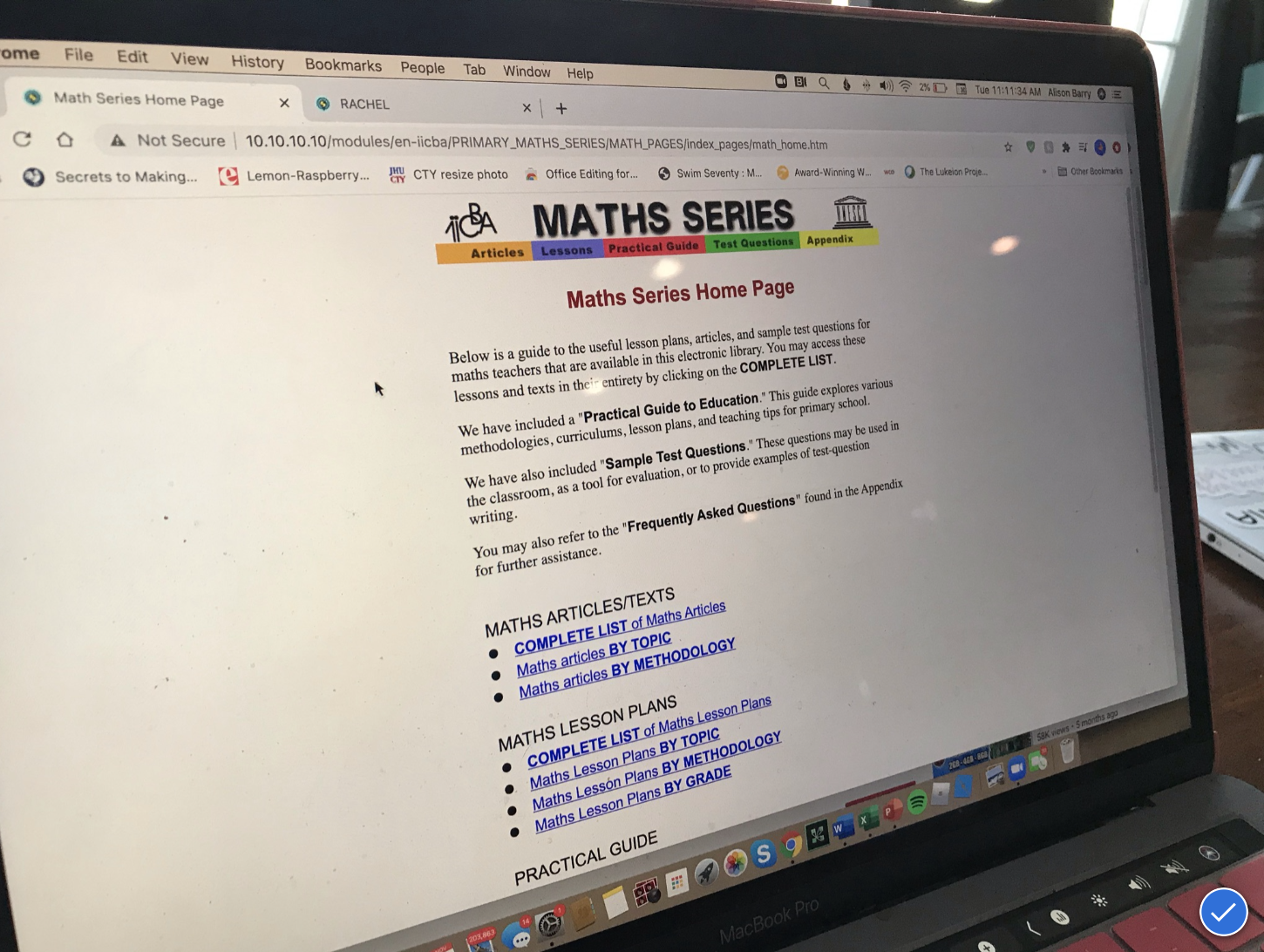This winter, in partnership with our friends Bob and Manning from USACF, we split into teams to build several solar powered digital libraries that we then shared with our partners in the Kyamaganda Community of the Lwengo District of Uganda.

These libraries are stored on a miniature computer, a Raspberry PI. Bob and Manning, and some WBS kids, compiled the material. The books which are stored on the raspberry PI include African stories, classic British and American literature currently in the public domain, textbooks in the subjects of math, science, history and health, Khan Academy lessons, Wikipedia excerpts, and Health and Agriculture texts relevant to African life. In total, there are 1,000’s of books or lessons available to either view or download.


The raspberry PI has a signal range of between 25-50 feet. Any WIFI enabled device can pick up the signal and have access to the material. This is very important in areas that have no internet, as it provides books and resources that are otherwise unavailable. Parents can download books and lessons for children unable to attend school. Using a projector, teachers can provide lessons to an entire class.

Here is a report from Mark regarding the success in Zimbabwe:
“I got an update from Dominic Muntanga about the status of education in Zimbabwe last week. Because of Covid-19 and a teacher’s job action over wages (Zim is in the midst of a runaway inflation spiral), schools are closed. When they will reopen is anyone’s guess. Most rural children have no access to books. Most learning is on hold. Dominic wondered what could be done.
Enter the Bridge Pi. We came up with a plan to work with church congregations and urban centers. Moyo (our Zimbabwean expert on the Pi) would bring his Bridge Pi to a designated location on a specific date. Parents, relatives and friends would come with the cell phones and if they got within 50 meters of the Bridge Pi, they would be able to download a variety of books onto their cell phones. Suddenly children with no books could read books on their family’s cell phones. What was amazing was how easily this was put into motion.
Its potential is enormous in every community across Africa and elsewhere.
It’s like turning on a light in a dark room.
Enormous thanks to Bob Rollins and Manning Sutton who developed the Bridge Pi and are continually adapting it to the needs of different countries.”
We decided to begin our KCDO introduction of these digital libraries with 3 units. Two are powered by electricity and one has the option of being solar powered. We divided up the assembly and testing of these units between three families, this shared both the cost (approximately $130 each) and the work (very simple).
Brooks made the first one, following internet directions and additional directions from Manning.
Then our friends in California, Iris and Noah, made the next one. Each of us tested our units. It was amazing to see all of the digital options pop up on our computer and phones, all powered by this one tiny computer. Henry, Ella and Wills made the third. Theirs has optional solar power.
Finally, we were able to send the first two digital libraries to Willy at KCDO in Uganda. It took him a few tries, but Brooks spoke to Willy on WhatsApp and so did Bob and Manning. Willy and Brooks rewrote the directions in a simpler form. Willy said, “It’s working!”
Next Willy held an all-day conference at the KCDO library. He brought tech support and the heads of the three target test schools, as well as students from the schools so that everyone could test the system, see what works and make a plan to incorporate the materials into the school system. The teachers and students offered some suggestions which Bob and Manning are working on, such as incorporating Uganda specific school books. The KCDO report on this event can be read here.
Brooks will test Henry’s solar raspberry PI. Bob and Manning may update the SD card to include Ugandan specific information, and we will send this third mini-computer on to KCDO. Several of these mini-computers are already successfully deployed in Zimbabwe, we are hopeful that we can have similar success in Uganda.

Looking for a winter simple activity?
Contact us if you would like to build a digital library for the Kyamaganda community. We look forward to hearing from you!






